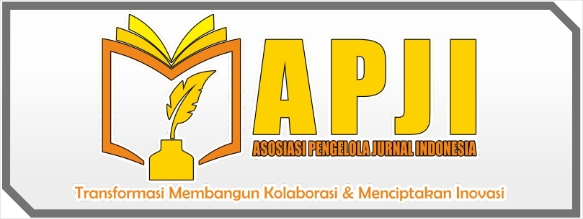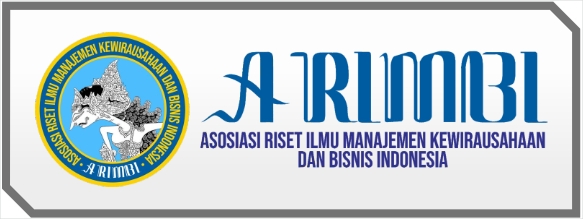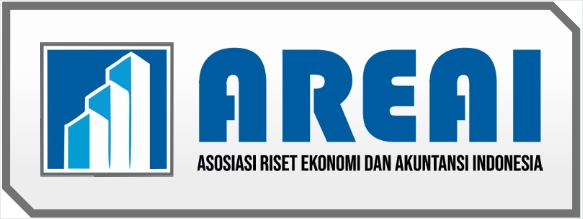Implementasi Kebijakan Kelompok Informasi Masyarakat (KIM) Berbasis Pemberdayaan Masyarakat Kabupaten
DOI:
https://doi.org/10.58684/jarvic.v2i3.88Keywords:
KIM, Community, ImplementationAbstract
The goal to be achieved in this research is to find out the implementation of community information group (KIM) policies based on community empowerment in Paser Regency. The method used in this research is descriptive qualitative. In order to obtain data related to the required research focus, the researchers conducted interviews with the KIM chairman, KIM members and community leaders. In order to support the information obtained, the researcher also conducted field observations. The results of this study indicate that the communication established by KIM members is based on flexible timeframes, limited to communication via WhatsApp. Formal recruitment has not been optimally carried out because the KIM organization is voluntary in which the majority of its members are village officials themselves so that the resources recruited do not have the expertise in the required field, namely IT. the members do not yet have the ability to be competent in their field, considering that this organization is voluntary, the members who participate are also from the village community who do not yet have qualified skills. the organizational structure is explained that in KIM the organizational structure consists of a chairman and members where the structure is a differentiator in completing tasks and responsibilities. Obstacles faced which include the lack of incentives that make KIM members not run according to formal procedures, low understanding of journalism, low time management and low facilities and infrastructure owned.
References
Aldhama, Pinky, and Program Study. 2022. “Pengaruh Review Dan Affiliate Marketing Produk Marketplace Terhadap Impulse Buying Konsumen Dalam Perspektif Ekonomi Islam.” Universitas Islam Negeri Raden Intan.
Andon, P. 2018. “He Impact of Financial Incentives and Perceptions of Seriousness on Whistleblowing Intention.” Journal of Business Ethics 151.
Dian Lestari, Neta, and Boby Agus Yusmiono. 2018. “Analisis Penggunaan Sarana Dan Prasarana Untuk Menunjang Kegiatan Belajar Mahasiswa Di Universitas Pgri Palembang Tahun Akademik 2016/2017.” JMKSP (Jurnal Manajemen, Kepemimpinan, Dan Supervisi Pendidikan) 3, no. 1: 41–51. https://doi.org/10.31851/jmksp.v3i1.1522.
Dwimawati, Eny. 2019. “Pemberdayaan Masyarakat Melalui Pemanfaatan Teknologi Dalam Rangka Meningkatkan Kualitas Sumber Daya Manusia Di Desa Gunung Menyan.” Jurnal Abdi Dosen 3, no. 1.
Edward III, George C. 1980. Implementing Public Policy. Washington DC: Congressional Quarterly Press.
Elias, R. 2008. “Uditing Student Professional Commitment and Anticipatory Socialization and Their Relationship to Whistleblowing.” Anagerial Auditing Journal 23.
Fitriani, Yuni. 2020. “Analisa Pemanfaatan Learning Management System Sebagai Media Pembelajaran Online Selama Pandemi Covid-19.” Journal of Information System , Informatics and Computing 4, no. 2: 1–8.
Guddykunst, W. B. 2003. Cross Cultural and Intercultural Communication: Introduction. In Thousand Oaks,CA. Second Edition: Sage Publication.
Harefa, Darmawan. 2020. “Pengaruh Antara Motivasi Kerja Guru IPA Dan Displin Dengan Prestasi Kerja.” Aksara: Jurnal Ilmu Pendidikan Nonformal 6, no. 3: 225. https://doi.org/10.37905/aksara.6.3.225-240.2020.
Namudat, Hasan, Nina Karlina, and Budiman Rusli. 2018. “Analisis Kebijakan Pengamanan Objek Vital Di PT Freeport Indonesia.” Jurnal Responsive 1, no. 2: 39–44.
Pareek, Udai. 1996. Perilaku Organisasi, Seri Manajemen No 98. LPPM. Jakarta: PT. Pustaka Binaman Presindo.
Putri, Widy Amelia. 2022. “Pengaruh Insentif Dan Komitmen Organisasi Terhadap Niat Melakukan.” Jurnal Eksplorasi Akuntansi 4, no. 4: 761–74.
Priliana, Vina Alin. 2016. Pengaruh Whatsapp Messenger Terhadap Kinerja Komunikasi Organisasi. Bandung: Universitas Telkom.
Ridwan, Ade, Heru Nurasa, Mas Halimah, Program Pascasarjana, Kebijakan Publik, and Universitas Padjadjaran. 2020. “Implementasi Kebijakan Penanggulanan Emisi Gas Buang Di Kabupaten Bandung.” Jurnal Responsive 3, no. 4: 197–205.
Santoso, Bibit. 2018. “Menata Kebijakan Publik Yang Tepat Agar Tidak Terjadi Gejolak Di Masyarakat Bila Diundangkan.” Jurnal Pemerintahan 13, no. 1.
Sitorus, Amalia Azmi, and Muhammad Firdaus Rahmadi. 2021. “Disinkonisasi Kebijakan Pemerintahan Indonesia Dalam Penanganan Covid-19.” Jurnal Renaissannce 6, no. 01: 721–32.
Stikeleather, B. R. 2016. “When Do Employers Benefit from Offering Workers a Financial Reward for Reporting Internal Misconduct?” Ccounting, Organizations and Society 52.
Subekti, Mening, Muslih Faozanudin, and Ali Rokhman. 2017. “Pengaruh Komunikasi, Sumber Daya, Disposisi Dan Struktur Birokrasi Terhadap Efektifitas Implementasi Program Bantuan Operasional Sekolah Pada Satuan Pendidikan Sekolah Dasar Negeri Di Kecamatan Tambak.” The Indonesian Journal of Public Administration (IJPA) 3, no. 2: 58–71. https://doi.org/10.52447/ijpa.v3i2.923.
Surur, Agus Miftakus, and Ana Ulin Nadhirin. 2020. “Manajemen Waktu Pembelajaran Daring Di Masa Pandemi Covid-19 Pada TK Dharma Wanita 1 Baleturi.” As-Sibyan: Jurnal Pendidikan Anak Usia Dini 5, no. 2: 81–94. http://jurnal.uinbanten.ac.id/index.php/assibyan/article/view/2939.
Tyson, Shaun & Jackson, Tony. The Essence of Organizational Behaviour. UK: rentice Hall International, n.d.
Wijaya, Andree. 2015. “Pengaruh Kemampuan Dan Motivasi Terhadap Kinerja Karyawan The Effect Of Ability And Motivation On E Mployee ’ s Performance.” Jurnal Ekonomi 1, no. 2015: 1–17.















